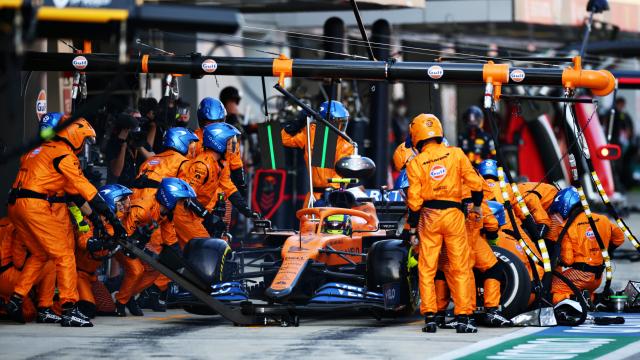We don’t talk about mental health enough in motorsport. The mindset that talking about your emotions — your fears and disappointments — makes you weak pervades the institution of racing, whether it be the drivers, crew members, journalists, or fans. But McLaren’s Formula One team is opening up the discussion when it comes to the coronavirus pandemic.
F1’s 2020 Australian Grand Prix coincided with the international onset of COVID-19, right around the time that everyone started to realise it was a big deal and would likely have a far-reaching impact across the board. The series shipped pretty much the entire circus out to Albert Park. Then, a member of McLaren tested positive for COVID-19, and the whole team withdrew from the race. The Grand Prix was eventually cancelled.
With the GP cancelled, most team personnel returned home. But members of McLaren in close contact with the infected team personnel found out they’d be sticking it out in the standard 14-day quarantine — although, it was hard to get a straightforward answer about the proper protocol.
Suddenly, a few members of the team were left behind in Australia while the flight they were supposed to be on headed home with the rest of their crew.
You can watch the full video below, or on McLaren’s YouTube page:
I think mostly everyone has felt some form of mental distress during this pandemic. Maybe you started to go stir crazy in isolation at your apartment. Maybe you lost your job and had to scramble to find a way to support yourself as more and more people lost their jobs, too. Maybe you lost a family member or a friend.
Whatever the case, it’s been bad. The New England Journal of Medicine notes that many people are able to find a new sense of strength in the wake of a big disaster, but it’s a much different story when that disaster has dragged on for several months. The longer people feel worried or unsafe, the more likely they are to develop anxiety, depression, PTSD, or other forms of psychopathology. The journal noted that many people in isolation reported “stress, depression, irritability, insomnia, fear, confusion, anger, frustration, boredom, and stigma associated with quarantine” even after they were able to go back out in the world.
And the impact of those uncertainties were heightened for many of the first people to undergo quarantine. We had very little idea what the impact of the virus would be in March, and models at the time were predicting millions of deaths in the United States alone.
The folks at McLaren detail many of the emotions that came from being, essentially, trapped in one room for two straight weeks with no idea what would happen to them — which is a crucial discussion we need to be having. More and more people have been looking for therapy to deal with a bevy of difficult emotions, but the stigma against seeking assistance with mental health is still alive and well.
It’s great to see McLaren taking that issue seriously and showing that it’s not a big deal to open up to your friends when you’re having a difficult time.
